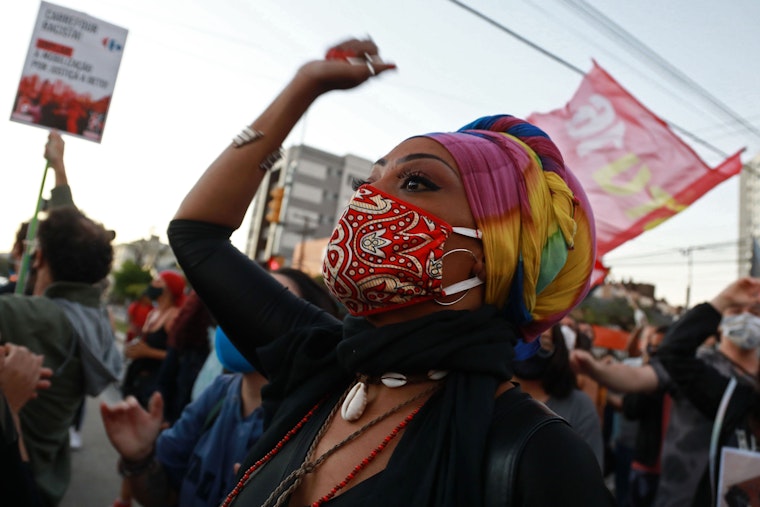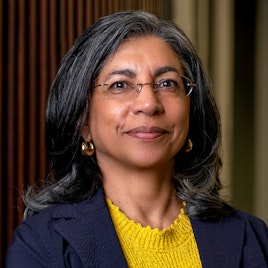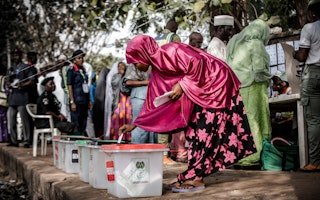The Open Society Foundations Move Ahead on Transformation
By Binaifer Nowrojee

We are living in what our founder George Soros calls “revolutionary times.” We face a climate crisis, a global pandemic that has deepened systemic inequalities, and the sustained rise of authoritarianism across the globe. These are dark times for human rights. We see the backsliding in many of the countries where the Open Society Foundations work: Afghanistan, Tunisia, Myanmar, Ethiopia, El Salvador, Brazil, Hungary, and in the United States.
This is why Open Society is in the midst of a fundamental transformation of the way it gives away hundreds of millions of dollars. Some 30 years after our founding, Open Society is the world’s largest human rights and civil liberties philanthropy. With 45 offices around the world, we work in over 100 countries through some 40 different programs and foundations. We have demonstrated success on a breadth of issues throughout our history. But a changing world warrants self-examination to make sure that we are responding as nimbly as we must to the changing reality of the world.
Moving forward, we will reinforce George Soros’s original premise that the people closest to the problem are best suited to define the solution. We are shifting greater funding, control, and decision-making to our six regional offices to identify opportunities at the national and regional level. At the global level, we can be more effective if we focus on fewer key priorities at greater scale. We are consolidating a dozen separate thematic programs into a single global program. The work of these seven programmatic centers (six regions and global) will integrate the full range of the Open Society Foundations’ tools—grant-making, advocacy, strategic litigation, and impact investment—in order to harness our full capabilities.
Achieving greater focus, scale, and integration requires difficult choices. It is undoubtably painful to see talented and committed staff moving on to other opportunities, and long-standing funding relationships with key grantees come to an end as we exit lines of work. We seek to do this with care and support, and to look for new ways to collaborate together.
We are beginning to pioneer new ways of working. We have launched a $12 million campaign to advocate for basic fairness on behalf of low- and middle-income countries whose economies have been hardest hit by COVID-19, particularly on issues of debt relief. We are collaborating with other funders to accelerate equitable distribution of vaccines in the Global South. We have committed $100 million to promote women’s rights globally—working at an unprecedented scale to promote gender justice. All of these efforts draw on expertise across our global network. These are all dramatic changes, and more is expected to come as we work through this process. In the meantime, over the past couple of weeks, and in the midst of this organizational transformation, we have been able to maintain our ability to respond rapidly and effectively to crises, and in particular two sudden emergencies—the earthquake that devastated areas southwestern Haiti, and the unexpectedly sudden fall of the Afghan capital, Kabul, to the Taliban.
Within days of the fall of Kabul, we announced a $10 million fund to provide humanitarian support for Afghans, including the evacuation and resettlement of refugees fleeing the country. We were also deeply relieved to be able to arrange the successful evacuation of our staff and their immediate families from the city to safety in Albania, together with civil society leaders, activists, and artists at risk. Meanwhile, we announced a $2.5 million fund to support recovery from the Haiti earthquake through our local foundation there, with funds focused on emergency support for smallholder farmers and small agricultural businesses, and restoring local food production in affected areas.
In both these cases, we saw the rapid response and flexibility, with a focus on impact, that we have always aspired to—the qualities that the times demand of us, now perhaps more than ever.
We need to be satisfied with nothing less in all that we do.

Binaifer Nowrojee is the president of the Open Society Foundations.
